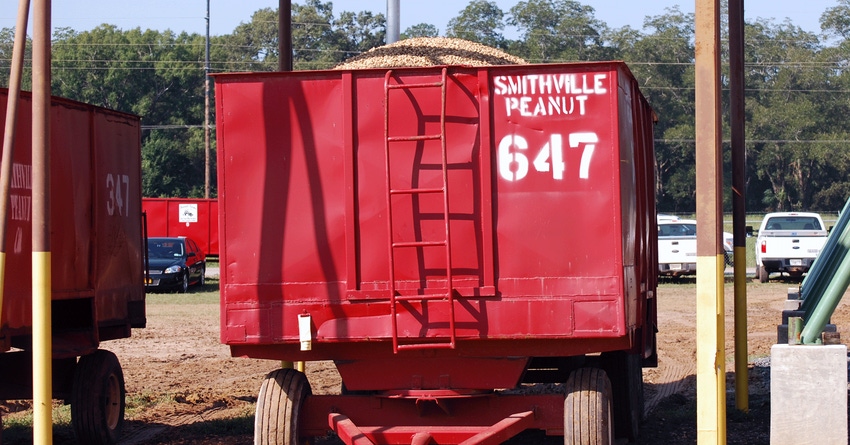September 2, 2016

The Peanut Standards Board voted to raise the grading score used to classify farmer stock peanuts as SEG 2's from 2.49 percent to 3.49 percent.
The Georgia Peanut Commission and Georgia Farm Bureau say the change will benefit American peanut farmers who have been affected by having their crop graded as Segregation 2.
The revisions are necessary due to the changes made in the 2002 Farm Bill's peanut provisions made in moving from the old quota program to the current peanut program but the definitions of Segregation 1, Segregation 2 and Segregation 3 for farmer stock peanuts were not changed. However, the definition for what farmer stock peanuts could be used in the domestic edible channel was changed, according to a statement by the GPC.
"A farmer having a majority of their crop graded as Segregation 2 is an economic devastation which could lead to bankruptcy while the true value seems to be significantly higher," says Armond Morris, chairman of the Georgia Peanut Commission. "Based on the tonnage of the peanut crop, potential value and current use of Segregation 2 peanuts in the edible market, a re-examination of what constitutes a Segregation 2 peanut and the associated loan value is prudent."
The Peanut Standards Board, authorized under the Farm Security and Rural Investment Act of 2002, consists of 18 members representing the peanut-growing regions of the U.S. The United States Department of Agriculture consults with the board to establish or change quality and handling standards for domestically produced and imported peanuts.
From a nationwide perspective, Segregation 2 peanuts usually constitute less than 1 percent of the entire U.S. crop. Peanut growers, however, have experienced some very challenging weather conditions in recent years, especially with rain at harvest time, which has increased the percentage of peanuts being graded as Segregation 2s. This adjustment to the grading score will not affect the quality of peanuts being delivered to the market.
The recommendation from the Peanut Standards Board will now be taken under consideration by USDA.
You May Also Like




